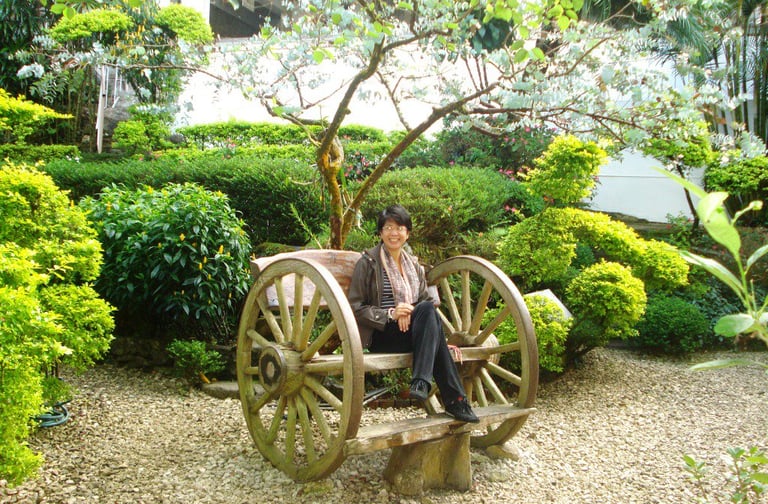Writing for Young Adults in Philippine Literature: A Marathon of Creativity
WRITER AT WORDHOUSE


Writing for the Age of Becoming: Reflections on Filipino YA
Writing for young adults began to prod at me in an unexpected way. A young, impressionable person lives with me, and as I observe his daily routine, at home, in school, bent over his tablet screen, loose and loud on the playground, I grow curious about the in-between years he is inhabiting. These are not quite childhood, not yet adolescence, but something unsettled and forming. Already writing essays and poetry, I found myself wanting to write for this young person in particular, and for the thirteen-to-eighteen age bracket more generally.
In looking outward, however, I noticed a gap in Philippine literary publication. Young people appear to be a lesser priority in mainstream literary production. Institutions such as the Philippine Board on Books for Young People play an important role in supporting literature for the youth, yet children’s books continue to dominate publishing, marketing, and distribution. The young adult audience remains largely at the margins, its concerns softened, summarized, or deferred into hindsight. Stories for them are often written about youth, rather than for those living through its confusions in real time.
Identifying the Filipino YA Reader
Writing YA in the Philippine context feels more deliberate than writing longer novels or poetry. Perhaps it’s because we know, as writers, that on the page we cannot merely impress the young, we are inevitably teaching them something. Every sentence carries the responsibility of shaping a young mind, whether subtly or overtly.
Filipino young adults like the rest of the young people in the world live inside layered realities: family problems, financial pressures, questions of faith, adjustments in migration, social media scrutiny, and mental health challenges. As they are still assembling the vocabulary to express what they feel, writing for them demands an attentiveness that cannot simplify their world. It’s not enough to watch them; I must study their language, listen to their ideas, and inhabit the spaces they navigate. Perhaps this is why, as I begin this project, it feels more like running a marathon than sprinting toward a finish line.
Why Filipino YA Stories Take Time to Write
Restraint is one of the main reasons Filipino YA books take so long to materialize, although it is not the only reason. The formative moments of young people are unpredictable and cannot be neatly explained by familiar patterns or set expectations. At the same time, I wonder how middle-class book buyers decide on foreign YA titles. Why are these young readers drawn more to imported literature? This preference contributes to the further underrepresentation of Filipino YA writers. As a result, production and prioritization of this audience are not urgent from an industry standpoint, which only adds to the slow pace of local YA publishing.
Famous Filipino YA Books
Filipino YA books do exist in bookstores, though often outside the spotlight. Some, like Trese, have gained international recognition for their urban Filipino folklore and graphic storytelling. The Janus Silang series is another locally grounded fantasy that holds young readers’ attention, as shown by its ongoing sequels. Books by Carla Pacis tackle social issues in ways young people can relate to. Candy Gourlay’s works prompted by local culture explore the difficult years of growing up, focusing on specific developmental challenges.
Even works not explicitly labeled as YA, early books by Bob Ong, for example, were beloved by young readers because of their distinctive voice in the vernacular. The early novels of Eros Atalia, fast-selling graphic novels and komiks, and Tagalog romances all point to the same truth: stories are read and bought when young people can access the language. These books demonstrate that the appeal is not just narrative or plot, but the peculiarities of style, tone, and voice that reflect Filipino ways of speaking, thinking, and feeling. Many literary tropes from university-led workshops have been challenged or reinvented through these works, showing that young readers engage most deeply when the language resonates with their lived experience.
Writing for my Young Reader
As I work on a YA book, I’m not entirely sure how, or if, it will reach publication. My pace is deliberate but steady, shaped by the realities of writing for young adults in the Philippines. I keep returning to the young person in my house, imagining the stories that would capture his attention. In doing so, I am giving him my full attention at a pivotal moment in his formation.
Like me, you may be closer to a YA story than you realize. That reader you can immediately picture will reveal the story’s thresholds. While you write, you won’t have the final say over everything, nor should you, but to pause, observe, and listen with intention to that young person is enough, for now.


